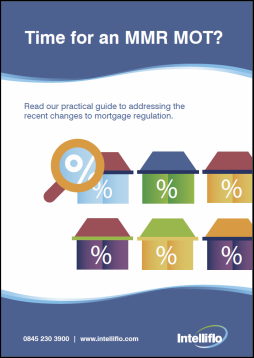91% of mortgage advisers feel prepared for the MMR
With the Mortgage Market Review (MMR) only a month away, mortgage advisers are feeling optimistic about what these changes will bring to their business. Our latest research reveals that 91% of advisers feel they are either prepared or very prepared for the new regulatory requirements. In fact, 72% of the mortgage advisers surveyed feel that the MMR will be positive for their business.
We conducted a survey of 100 mortgage advisers across the UK to find out how ready they felt for the MMR. While the majority seemed optimistic, 34% of advisers named increasing admin burdens as their biggest concern, with 11% worrying that the MMR would negatively impact sales. Other concerns included an increase in compliance costs (6%) and longer working hours (5%).
Our findings showed that mortgage advisers are well aware of the responsibility they have to provide lenders with detailed client profiles. In preparation for these new requirements, which include carrying out in depth scenario planning and ‘rate shock’ tests, the survey found that the most common changes mortgage advisers have implemented are to process (20%) and training (28%).
Our research also found that spending on technology has been relatively low in order to prepare for the new regulations, with 72% of advisers having spent £3,000 or less, and 4% spending up to £10,000. Despite this, 94% of mortgage advisers are confident or very confident that their systems will allow them to evidence compliance post the MMR. This highlights the fact that effective technology in this sector can be low cost.
Whilst it doesn’t have to break the bank, having the right technology systems in place will be hugely important when it comes to efficiently complying with the new requirements. Appropriate software can help to alleviate the admin burdens brought on by the MMR, speeding up processes, improving accuracy and reducing unnecessary duplication. Advisers who don’t plan to use technology to help with the increased administrative tasks run the risk of having to put in extra man hours, which increases operational risk, and could also reduce the amount of quality face to face time they spend with clients.
To see the full results of our research and accompanying analysis, you can download our White Paper below







